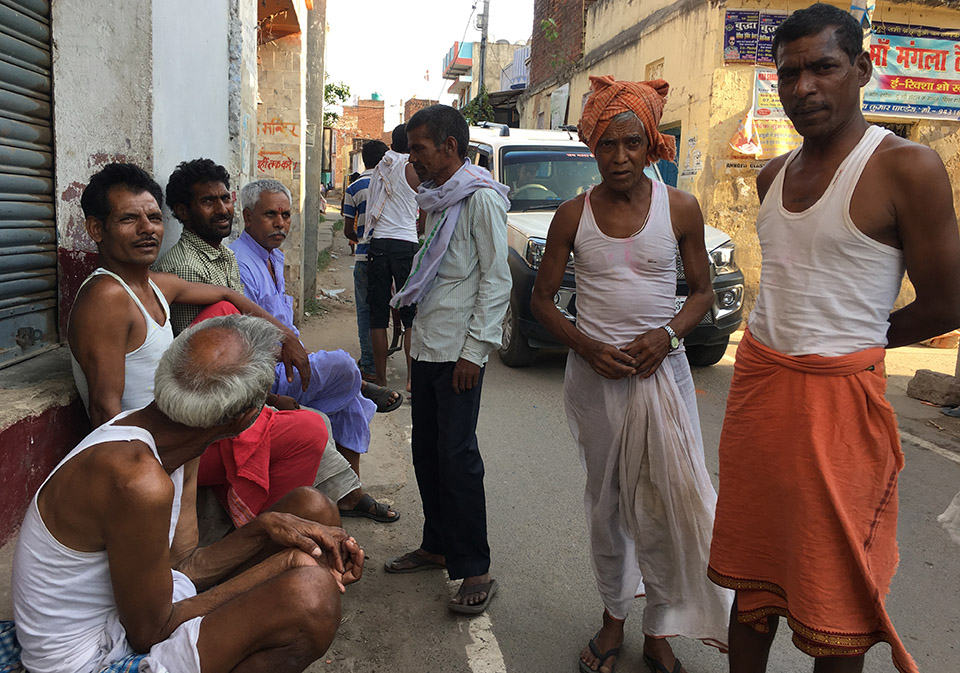
JD(U) unlikely to lose tourism hub Nalanda despite poor development

Sitting in a tea shop in Bargaon, a village near the archaeological site of Nalanda, Bihar, Anuj Kumar says he will vote for Bharatiya Janata Party on May 19. Kumar, a first-time voter, believes in Prime Minister Narendra Modi and, hence, expresses his support to the the party.
“Modi brought back honour to the country with the airstrike against Pakistan. He does what he says,” Kumar says. This means his vote indirectly goes to the BJP’s alliance partner Janata Dal (United) and its candidate and sitting Member of Parliament, Kaushlendra Kumar. Many villagers echo similar sentiments.
In the same tea shop, Nithyanand Prasad is an exception. He says he will not support the BJP. Prasad, a middle-aged businessman, says the good and services tax introduced by the government affected his earning. He claims it pushed the medicine rates higher by 10-20 per cent, which brought down his sales. Prasad also questions the lack of development in the healthcare, tourism, and public transport sectors, among others.
Both, Kumar and Prasad, belong to bhumihar caste group.
In another village in Biharsharif Assembly segment, painter Mukesh Kumar and his helper Mohammad Hussain sit down to drink toddy, which is exempted from the liquor ban in Bihar. Discussing politics, Kumar says he will vote for the BJP based on the recent developments in his region — new roads, streetlights and toilets were built under the Swachh Bharat mission. Hussain says he will support a non-BJP candidate part of the ‘mahaghatbandan’ (Hindustani Awam Morcha candidate Ashok Kumar Azad Chandervanshi).
Nalanda Lok Sabha constituency, home turf of Chief Minister Nitish Kumar, has a strong BJP-JD(U) presence as leading caste groups — kurmis and bhumihars — root for Kaushalendra Kumar. While yadavs and minorities are with the HAM contestant, some traditional JD(U) voters (bhumihars) question the lack of development in the region over the years.
The Nalanda district attracts a significant amount of national and international tourists because of its proximity to Bodh Gaya, Rajgir and the ruins of Nalanda and Nalanda University, among others.
“In case of a medical emergency, one has to rush to Biharsharif metropolitan area, which is 35 km from Rajgir. Despite JD(U) winning for more than five terms, why haven’t things changed?” asks Anuj Yadav, a taxi driver in Rajgir. Rajgir houses the new Nalanda University and attracts foreign tourists and students.
Anuj says that he could earn more had the government put effort to develop it as a tourist destination. “There are no big hotels and tourist information centres despite the high number of foreign tourists,” he says.
A professor at the University, who migrated along with her three-year-old daughter from Delhi to Rajgir, rues that the town does not have good schools and housing facilities. The professors stay in the University premises or share a room in the college hostel.
JD(U) retained the Nalanda Lok Sabha for the past seven terms. Veteran socialist leader George Fernandes won the seat thrice, in 1996, 1989 and 1999. Nitish won this seat in 2004 and after he became the chief minister, the seat went to close aide Kaushalendra, who retained the seat in 2009 and 2014.
But the caste equation overrides the development and anti-development talks. JD(U)’s Kaushalendra won the seat in 2014 with a 9,627 vote margin against the Ram Vilas Paswan-led Lok Janshakti Party (LJP) candidate.
Though JD(U) and LJP fought against each other, they had a combined vote share of 69 per cent. Since the BJP, JD(U) and LJP are fighting this election together, the consolidation of votes could be in their favour. That said, the voices against the lack of development in the region by a section of bhumihars and kurmis could hurt the JD(U) and improve the chances for HAM candidate Azad Chandervanshi. While the BJP is not directly fighting the election in Nalanda, PM Narendra Modi’s narrative success and local development initiatives reflect in villages, which they attribute to Nitish Kumar and the BJP. To add to it, many applaud Chief Minister Nitish Kumar’s liquor ban.
Professor Shyam Nand Singh of Central University of South Bihar said the anti-development issue would have turned against the JD(U) had it been a yadav belt. But since it’s Nitish’s stronghold, the traditional votes will be in favour of the party, considering the kurmi votes that constitute 30 per cent of the vote bank in the region.
“The development (roads, water, toilets) that people talk about should have been done decades ago. Now, these matter to them as they are promoted in the name of Nitish and Modi. There are no employment generating schemes that can contain migration,” SN Singh adds.

